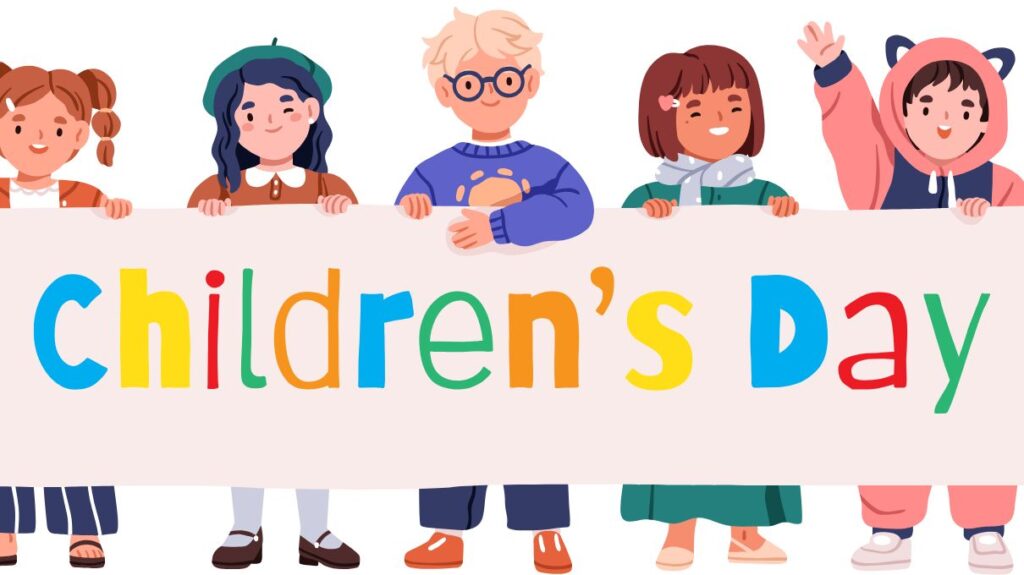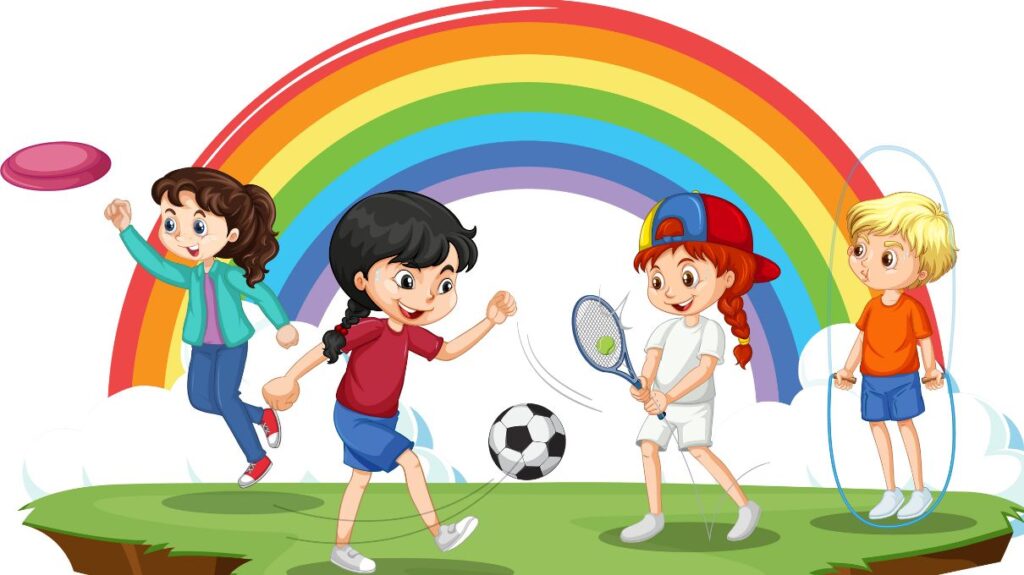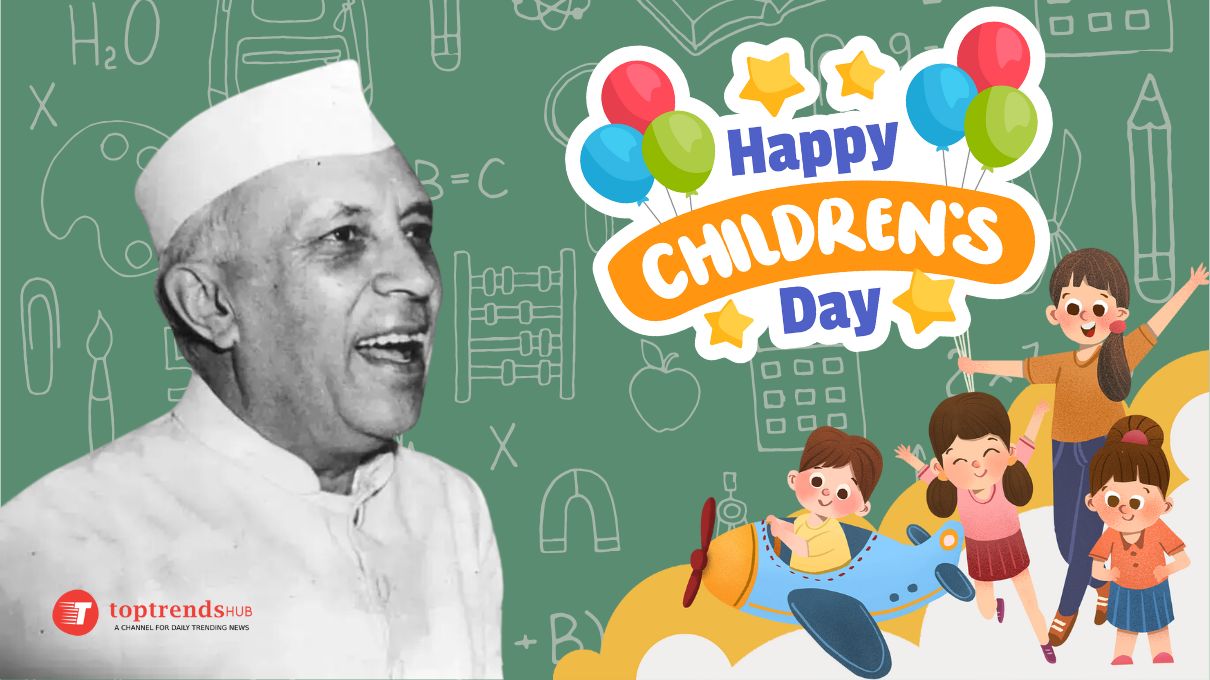Children’s Day celebrated annually in India on November 14, is a day dedicated to children and their welfare. This joyous occasion honors the birth anniversary of Pandit Jawaharlal Nehru, a visionary leader and India’s first Prime Minister, who believed deeply in the potential of children as the foundation of the nation’s future. With themes of care, love, and nurturing at its core, Children’s Day, or Bal Diwas, holds immense importance in Indian society.
Children’s Day 2024, Significance is Celebrated in India
In this article, we delve deeper into the date, history, significance, and vibrant celebrations of Children’s Day, while reflecting on how it inspires us to create a better world for our youngest generation.
Date of Children’s Day 2024
In 2024, Children’s Day will be celebrated on Thursday, November 14, marking the 135th birth anniversary of Pandit Jawaharlal Nehru. This date is a significant occasion for schools, parents, and organizations to come together to acknowledge the value of childhood and renew their commitment to the welfare of children.
Since 1964, India has celebrated Children’s Day on November 14. Schools across the country buzz with events, while communities come alive with laughter, games, and meaningful programs that highlight the rights and needs of children. The selection of this date uniquely aligns India’s celebration of children with the legacy of Pandit Nehru’s vision of an inclusive, equitable future.

History of Children’s Day in India
The Early Days: Universal Children’s Day
Initially, India observed Universal Children’s Day on November 20, following the declaration by the United Nations in 1954. Universal Children’s Day aimed to promote the welfare of children globally and encourage awareness about the issues they face, including access to education, healthcare, and protection from exploitation.
Transition to November 14
The change to November 14 came in 1964 after the passing of Pandit Jawaharlal Nehru. Known for his deep affection for children, Nehru was often addressed as “Chacha Nehru” or Uncle Nehru by young ones. Moreover, his belief in nurturing children as the true architects of the nation resonated widely and continues to inspire. As a result, Children’s Day on November 14 not only honors his legacy but also reinforces the importance of investing in the future of India’s younger generation.
The decision to honor Nehru’s birthday as Children’s Day was not merely symbolic but also a way to keep his ideals alive. Nehru was instrumental in shaping policies that emphasized education, such as the establishment of premier institutions like IITs and AIIMS, which have since contributed immensely to India’s progress.
Why Chacha Nehru?
Nehru’s love for children wasn’t limited to affectionate words; he worked actively to improve their welfare. He emphasized free and compulsory education, midday meal schemes, and health initiatives, ensuring that the young generation had a strong foundation. His approach inspired leaders to see children not just as beneficiaries of development but as active participants in shaping a progressive society.
Significance of Children’s Day
A Reminder of Children’s Rights
Children’s Day serves as a powerful reminder of the rights of children—to education, health, and a safe, nurturing environment. Despite significant progress, millions of children in India face challenges such as poverty, malnutrition, lack of access to education, and child labor. This day draws attention to these issues, encouraging society to work collectively toward solutions.
Inspiration for a Better Tomorrow
Children are the future of any nation. Investing in their growth, education, and well-being is not just a moral responsibility but also a strategic priority for national development. Children’s Day underscores this truth and inspires individuals, governments, and organizations to build systems that empower young minds.
Nehru’s Vision for Education
Pandit Nehru’s dream was to see India as a country where children were free to learn, grow, and dream. In addition, he believed education was the foundation of a strong society and advocated for modern, scientific, and humanistic education systems. As a result, Nehru’s focus on child-centric policies and the establishment of educational institutions laid the groundwork for India’s future generations. Furthermore, his vision continues to influence India’s educational landscape today.

Celebrating Innocence and Joy
At its heart, Children’s Day is also a celebration of the purity, curiosity, and boundless potential of childhood. The day is a reminder for adults to protect these qualities and foster an environment where children can thrive without fear or limitations.
How is Children’s Day Celebrated in India?
1. School-Based Celebrations
Children’s Day is one of the most anticipated days in schools across India. On this special day, teachers, administrators, and students come together to create a vibrant atmosphere of joy and learning. Moreover, the celebrations foster a sense of unity and enthusiasm, making it a memorable occasion for everyone involved. In addition, this day serves as a reminder of the importance of nurturing and empowering the younger generation.
- Morning Assemblies and Tributes: Special assemblies are conducted where students present speeches, poems, and songs about the significance of Children’s Day and the legacy of Pandit Nehru. Often, these programs include skits and role-plays that highlight themes like education and child rights.
- Fun and Games: From dance competitions to storytelling sessions, schools organize a range of activities to make the day memorable for children. Talent shows, sports events, and quizzes add an element of excitement.
- Teacher Performances: Teachers take the spotlight, performing songs, dances, or even humorous skits to entertain students. This gesture symbolizes the bond between educators and students, making the day truly special for young minds.
2. Community Events and Initiatives
Children’s Day celebrations extend beyond schools into communities and public spaces.
- Cultural Programs and Fairs: Local governments, NGOs, and social organizations often organize fairs, exhibitions, and cultural shows to engage children from diverse backgrounds.
- Awareness Campaigns: Campaigns highlighting child rights, education access, and health services are often launched to coincide with the day. These programs aim to create awareness and inspire action among policymakers and the public.
3. Gifts and Treats
The day includes small yet significant gestures that make children feel loved and valued. Many schools distribute sweets, toys, or small gifts, while parents often treat their children to outings, special meals, or surprises at home.
4. Focus on Underserved Children
Organizations and volunteers dedicate this day to bringing smiles to children from disadvantaged backgrounds. Through these efforts, initiatives like visits to orphanages, health check-up camps, and educational workshops ensure every child feels included in the celebrations. Furthermore, these activities not only spread joy but also emphasize the importance of equality and care for all children, regardless of their background. In addition, they serve as a powerful reminder of the collective responsibility to create opportunities for every child to thrive.
Modern-Day Context and Challenges
Addressing Child Labor and Exploitation
India has made strides in addressing issues like child labor and access to education, but challenges persist. Children’s Day serves as a platform to reaffirm commitments toward eradicating child labor and ensuring that every child has the opportunity to learn and grow.
The Digital Divide
In the digital age, ensuring access to technology and quality education has become a pressing issue. Children’s Day provides an opportunity to address the digital divide, particularly in rural areas, and advocate for policies that promote inclusivity.
Mental Health Awareness
Another growing concern is the mental well-being of children. Discussions and programs on Children’s Day often focus on the importance of providing children with a safe and supportive environment where they can express themselves freely.
How You Can Celebrate Children’s Day 2024
As Parents
- Spend quality time with your children. Plan a fun day out, cook their favorite meal, or simply engage in activities they love.
- Teach them about Pandit Nehru’s vision and the importance of kindness, education, and hard work.
As Educators
- Organize engaging activities that celebrate each child’s unique talents.
- Share stories of historical figures like Nehru to inspire students to dream big.
Citizens
- Volunteer with organizations working for child welfare.
- Sponsor a child’s education or contribute to programs focused on underprivileged children.
Conclusion
Children’s Day is more than just a day of celebration; it’s a moment to reflect on the challenges faced by children and work collectively toward building a society where every child can thrive. Honoring Pandit Nehru’s ideals reminds us of our responsibility to nurture the youngest members of our society and equip them to build a brighter, more equitable future.
This November 14, let us celebrate Children’s Day 2024 with love, compassion, and a renewed commitment to the well-being of every child in India.



